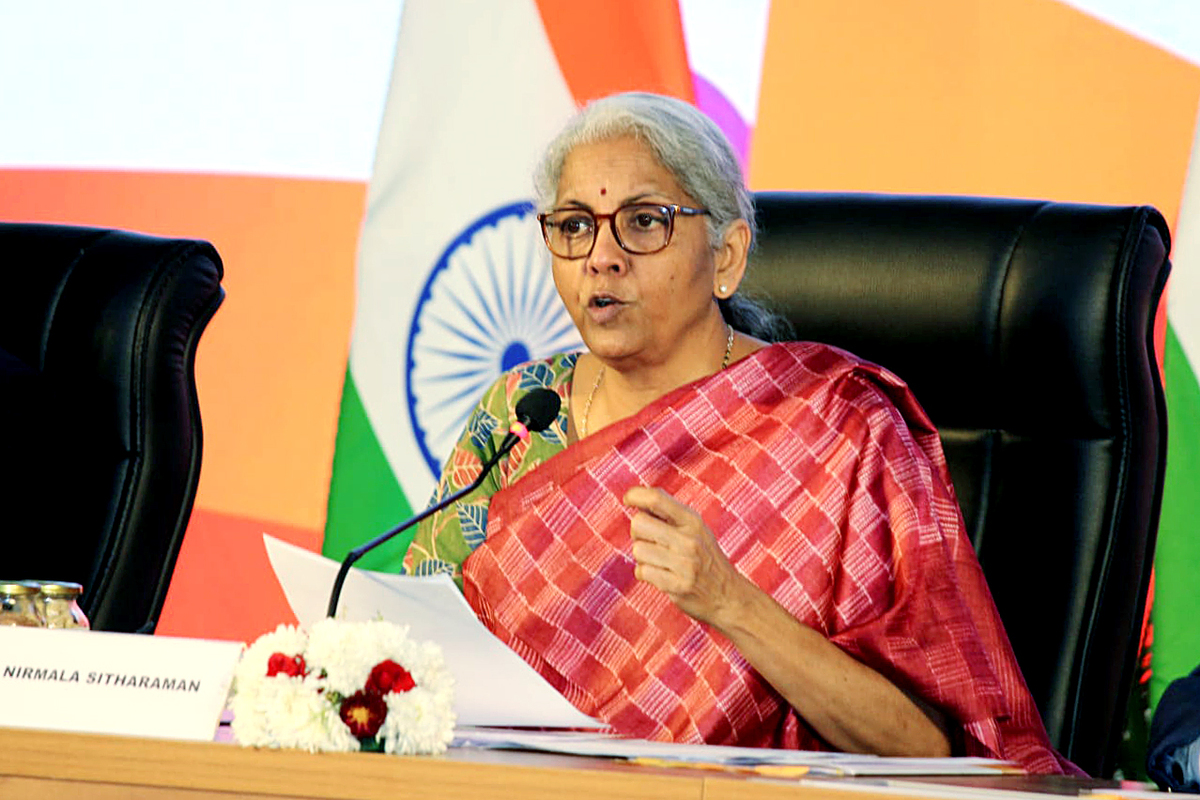Union Finance Minister Nirmala Sitharaman on Saturday said that the government is progressing towards regulation on Crypto Currency under India’s G20 presidency. Responding to a question from ANI regarding a consensus among the G20 countries on crypto assets during Indian Presidency, Nirmala Sitharaman said, “We are going through the study process so that there can be informed discussion. International Monetary Fund (IMF) and also the Financial Stability Board (FSB) have been doing their own little work on the crypto matter and progressing on their own. We’ve now asked them to do the papers and give it to us and the rapidity with which these papers have been already from IMF given and from FSB which will be given in time for the July meeting. I feel that we are progressing in this direction. So something should develop.”
“Recognizing the risks attached to the private virtual assets, G20 nations moved a step closer to developing a coordinated and comprehensive policy approach to deal with the crypto assets by considering macroeconomic and regulatory perspectives,” she said.
Advertisement
According to the chair’s summary, released at the end of the two-day meeting of the Finance Ministers and Central Bank Governors (FMCBG) on Saturday, the grouping will be looking forward to the IMF-FSB Synthesis Paper on crypto assets.
“I am glad to say one thing that there is almost a clear understanding that anything outside the central bank is not a currency. And this is a position that India has been taking for a very long time and we are glad that such a position of India is now getting also acknowledgment from so many different members. People recognise that the technology is very useful for fintech,” Sitharaman said after the conclusion of FMCBG.
Sitharaman said that side events are proposed on crypto assets at the IMF-World Bank Spring Meetings in April in Washington.
“Further, in July, the FSB’s paper on crypto assets regulation will be tabled so that it could be discussed at the next meeting of the finance ministers and central bank governors,” she said.
“The International Monetary Fund-Financial Stability Board (IMF-FSB) synthesis paper will be submitted in September,” she added.
Speaking on the issue, RBI Governor Shaktikanta Das said, “there is now wide recognition and acceptance of the fact that cryptocurrencies, or crypto assets, or crypto products, or by whatever name you call it to involve several major risks to financial stability, to monetary systems, to cyber security issues, and to overall financial stability and they need to be looked at.”
“Going forward, the effort is to develop an international framework, an international architecture to deal with this problem. The IMF and the Financial Stability Board are working on it. There will be a synthesis paper between the FSB and the IMF on this whole issue. And they will form the basis for future discussions to develop an international architecture,” Das said.
Quoting remarks made by Governor and some Finance Ministers of G20 countries on crypto, Sitharaman said, the World Bank is of the opinion that views of all developing nations should be included.
“If you recall them, basically they are implying that there were multiple views. Multiple options are under consideration. But it’s too early to speak on what will be the eventual architecture. But yes, there were views that it should be regulated with a view to control and check its proliferation, to control its risks,” the RBI Governor said.
“Let us see wait for the discussions to go forward and we will see how it shapes up. In any case, ultimately, every country is a sovereign country. Every country is sovereign. The countries will take their decisions. But once something is agreed in the G20, naturally it would be expected that countries would, by and large, follow whatever is the agreed position,” he added.
Despite the rapid evolution of the crypto universe, there is no comprehensive global policy framework for crypto assets. Given the concerns over greater interconnectedness between crypto assets and the traditional financial sector as well as the complexity and volatility around crypto assets, policymakers are calling for tighter regulation.
The global standard-setting bodies, such as the Financial Action Task Force (FATF), Financial Stability Board (FSB), Committee on Payments and Market Infrastructures (CPMI), International Organization of Securities Commissions (IOSCO) and Basel Committee on Banking Supervision (BCBS) have been coordinating the regulatory agenda while working within their respective institutional mandates.
India hopes to broaden the G20 discussion on crypto assets beyond financial integrity concerns and capture the macroeconomic implications and widespread crypto adoption in the economy. This will require a data-based and informed approach to the global challenges and opportunities of crypto assets, allowing G20 members to shape a coordinated and comprehensive policy response.
During the said meeting, a seminar titled “Policy Perspectives: Debating the Road to Policy Consensus on Crypto Assets” was held, as part of the Presidency’s efforts to broaden the dialogue around crypto assets.
The IMF speaker, Tommaso Mancini-Griffoli, presented the discussion paper during the event, highlighting the consequences of crypto adoption on the internal and external stability of a country’s economy as well as on the structure of its financial system.











